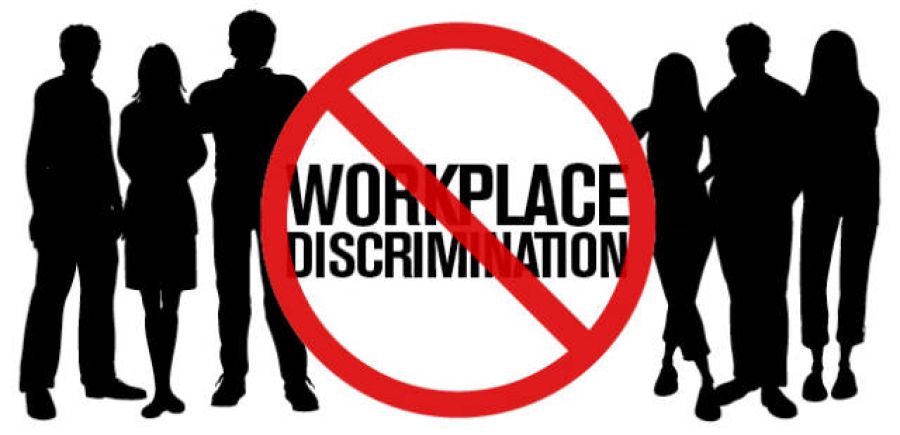Blog

Blog
Call us today for a free initial consultation on 0800 772 0341
The unhealthy effect of discrimination in the workplace
Published 29 April 2019


The unhealthy effect of discrimination in the workplace
For anyone subjected to any type of discrimination at work the impact can be devastating.
The target of such unfavourable behaviour, which may be based on their race, gender or religion, can suffer poor mental health and increased risk of physical health conditions.
Outside of their homes the workplace is where most employees are likely to spend a vast majority of their time, and it can be a pressured environment.
The burden and stress caused by discrimination in the workplace can take a significant and damaging toll both physically and mentally.
Many studies have looked at the harmful impact that discrimination can have on the victim.
A common theme in research from across the world is that general well-being, self-esteem, self-worth, and social relations can be severely impacted.
The findings indicate that discrimination in professional settings is much more stressful than discrimination in social settings.
The UK-based Economic and Social Research Council is currently involved in a study, which is looking to estimate the impact of perceived discrimination on health and wellbeing, (1)
The researchers say that growing evidence suggests that people who experience discrimination suffer poorer mental health and may even be at increased risk of physical health conditions, including cardiovascular disease and obesity.
It is also said that discrimination, as a social stressor, may also adversely affect health and wellbeing through biological stress pathways, promotion of unhealthy behaviours as a means to cope with or escape negative feelings, and/or restricted access to or uptake of healthcare and disease prevention services.
Discrimination in UK workplaces appears to be a growing problem, which is highlighted by the rise in claims for disability discrimination. The increase in such claims is said to be eight times faster than the growth in all claims.
The number of disability discrimination claims at Employment Tribunals is reported to have risen by 37 per cent, from 4,770 in 2017 to 6,550 in 2018. (2)
Discrimination means treating a person unfairly because of who they are or because they possess certain characteristics (3)
If an individual is treated differently from other people only because of who they are or because that person possesses certain characteristics, they may have been discriminated against.
The Equality Act 2010 highlights nine protected characteristics:
Age
Disability
Gender reassignment
Marriage and civil partnership
Pregnancy and maternity
Race
Religion or belief
Sex
Sexual orientation
Discrimination that occurs because of one or more of the above characteristics is unlawful under the Equality Act.
As everyone one of us has at least some of those characteristics such as age, race or gender, the Act protects every person from being discriminated against.
Employers should take a zero-tolerance approach to any type of workplace discrimination. Not only can it have a damaging personal impact on the victim, but a failure to do address the matter can have significant and costly ramifications for an employer.
A Yorkshire-based NHS Trust was ordered to pay nearly £4.5m in compensation to a doctor who it was said was hounded out of her job after deciding to have a baby (4)
A Leeds tribunal found that the female doctor suffered race and sex discrimination after colleagues were said to have mounted a ‘concerted campaign’ to bring her employment to an end while she was on maternity leave.
And earlier this year it was reported that an ex-Goldman Sachs analyst who arrived for work late and missed deadlines is suing the bank for £11m for disability discrimination over claims attitudes towards his attention deficit disorder denied him a lucrative career in banking (5)
While these may be examples of exceptional amounts in claims for discrimination, they should serve as a warning to employers of all sizes.
In cases where there is a successful claim for discrimination there is no limit on the amount of compensation that can be awarded (6) Employers should take all complaints of discrimination seriously and act promptly.
References
- Discrimination on health survey [Internet] https://gtr.ukri.org [Cited 29th April 2019] https://gtr.ukri.org/projects?ref=ES%2FR005990%2F1
- Disability discrimination claims at employment tribunals [Internet] https://www.telegraph.co.uk [Cited 29th April 2019] https://www.telegraph.co.uk/news/2019/04/28/workplace-stress-drives-disability-discrimination-claims-third/
- Treating a person unfriendly [Internet] https://worksmart.org.uk [Cited on 29th April 2019] https://worksmart.org.uk/work-rights/discrimination/basics/what-discrimination
- NHS trust [Internet] https://www.bbc.co.uk [Cited on 29th April 2019] https://www.bbc.co.uk/news/uk-england-leeds-16224062
- Goldmans Sachs [Internet] https://www.telegraph.co.uk [Cited on 29th April 2019] https://www.telegraph.co.uk/news/2019/02/13/ex-goldman-sachs-analyst-claims-denied-lucrative-banking-career/
- Successful claim for discrimination [Internet] https://www.xperthr.co.uk [Cited on 29th April 2019] https://www.xperthr.co.uk/faq/is-there-a-limit-on-the-compensation-that-can-be-awarded-in-a-discrimination-claim/69743/
“A reputation built on success”
For free employment law advice or if you are affected or want information and support by any of the issues in this article please give us a call. 0333 772 0611
A reputation built on success
If you're facing any of the issues in this article - or need guidance on disciplinary, grievance, or redundancy matters - call us today. Our expert Trade Union Representatives are available to represent you in crucial workplace meetings, with pay as you need support.